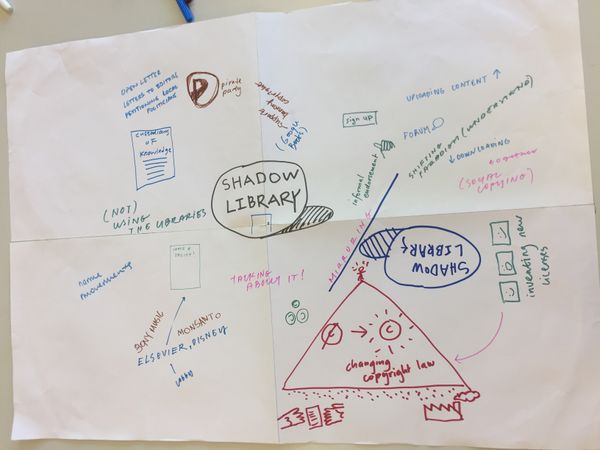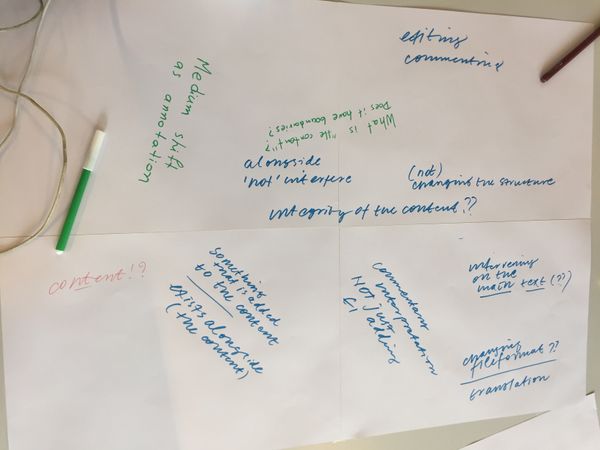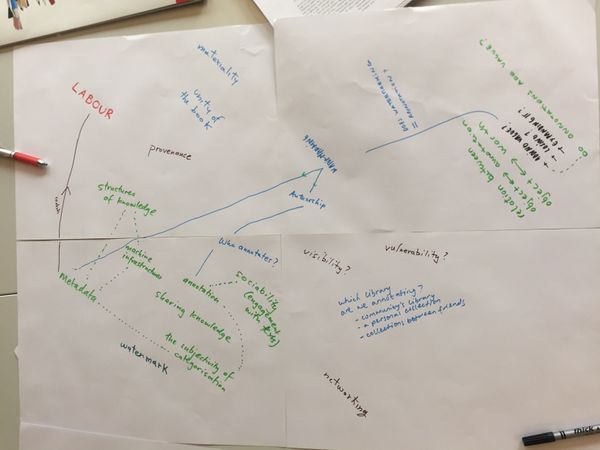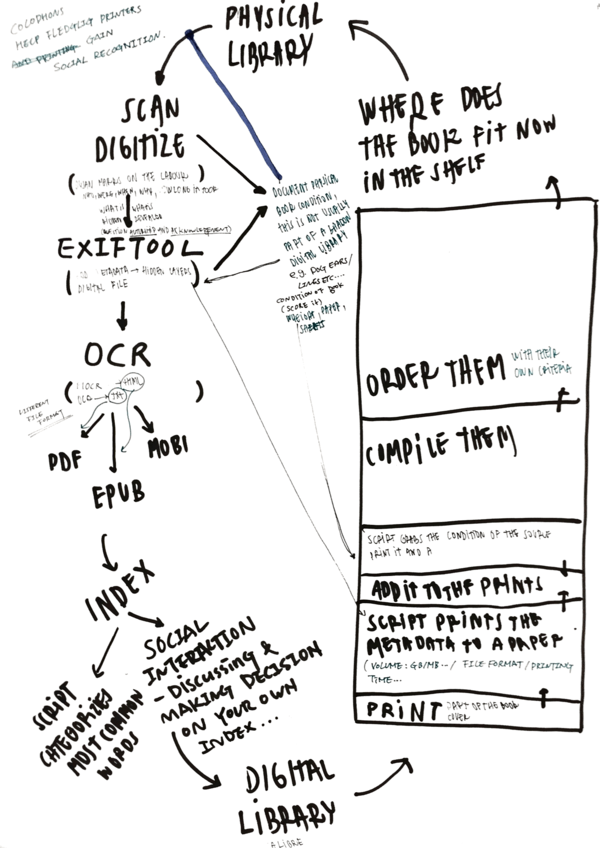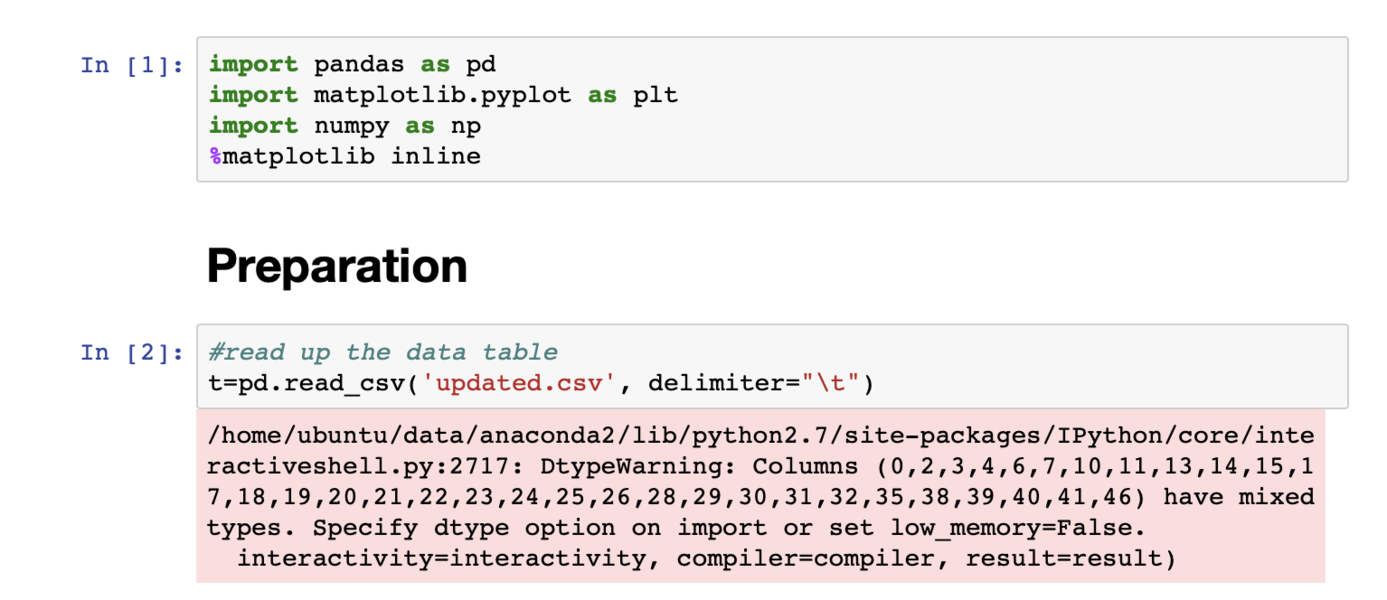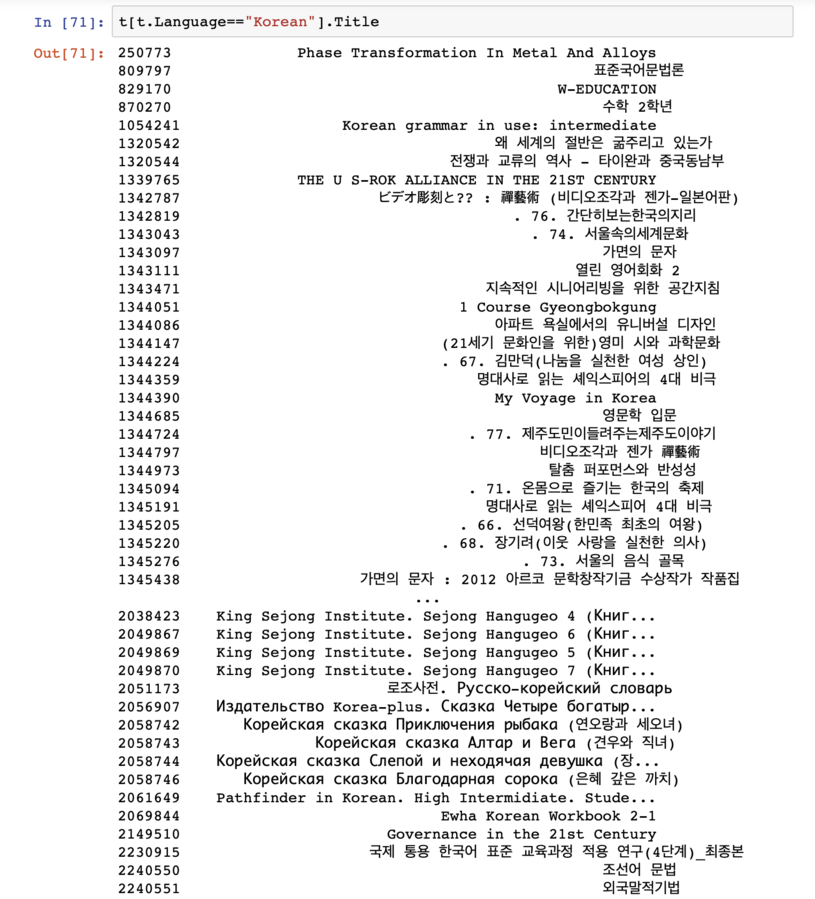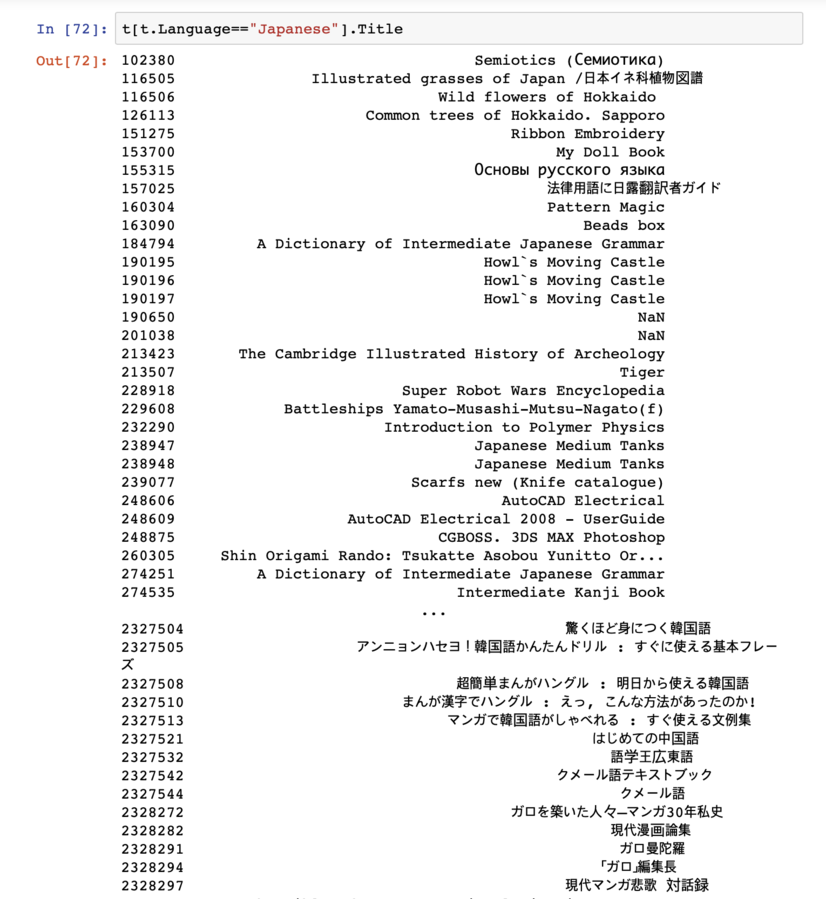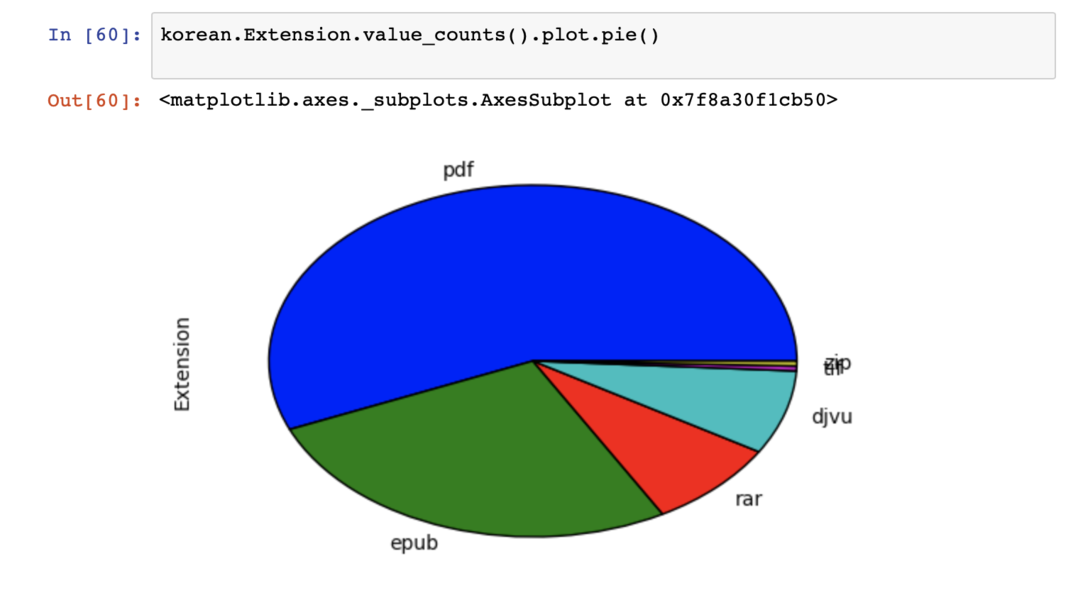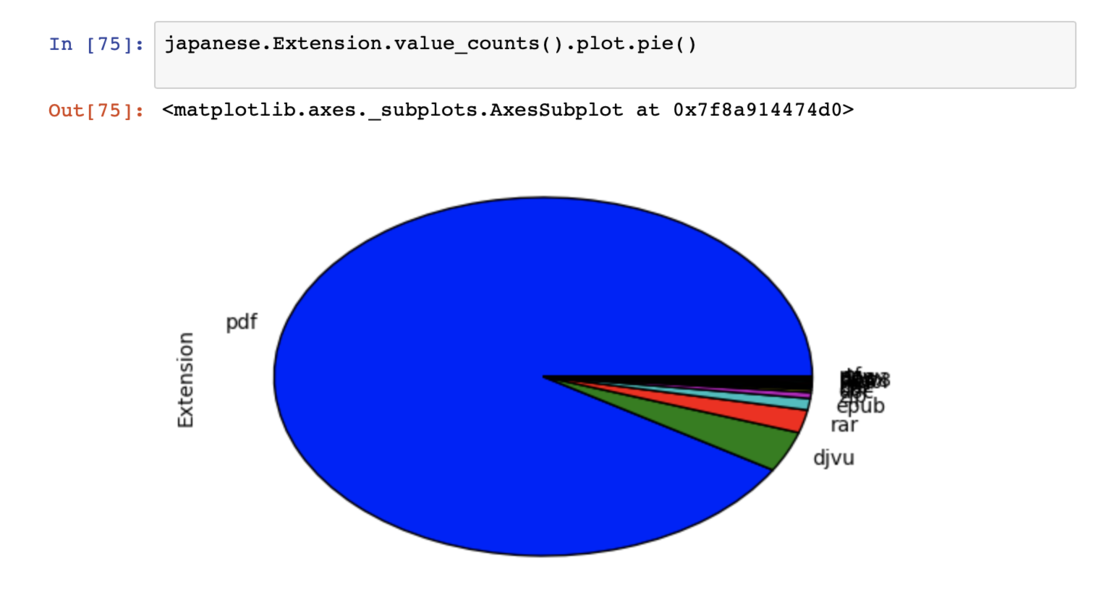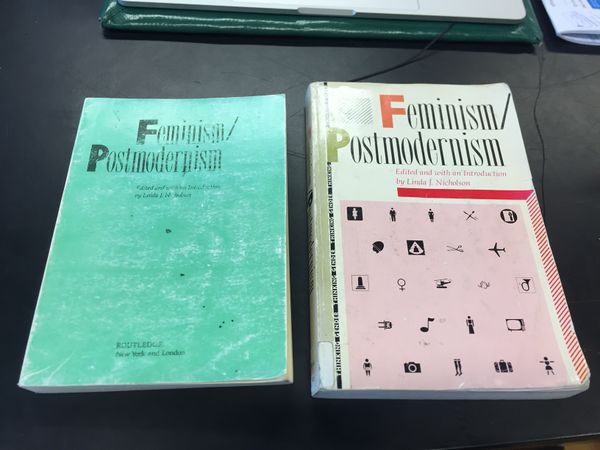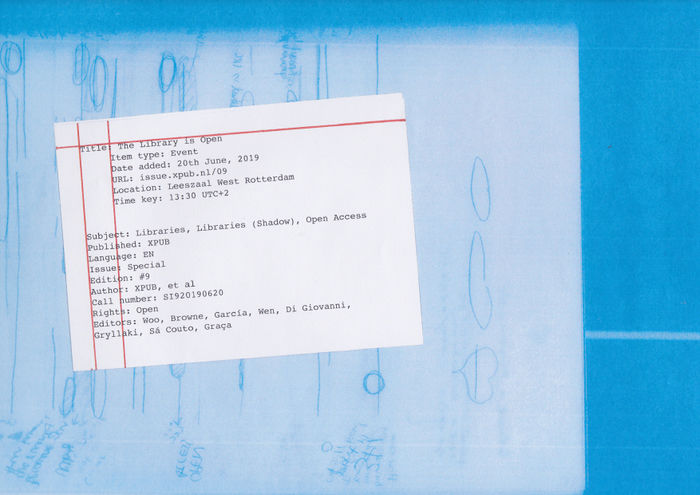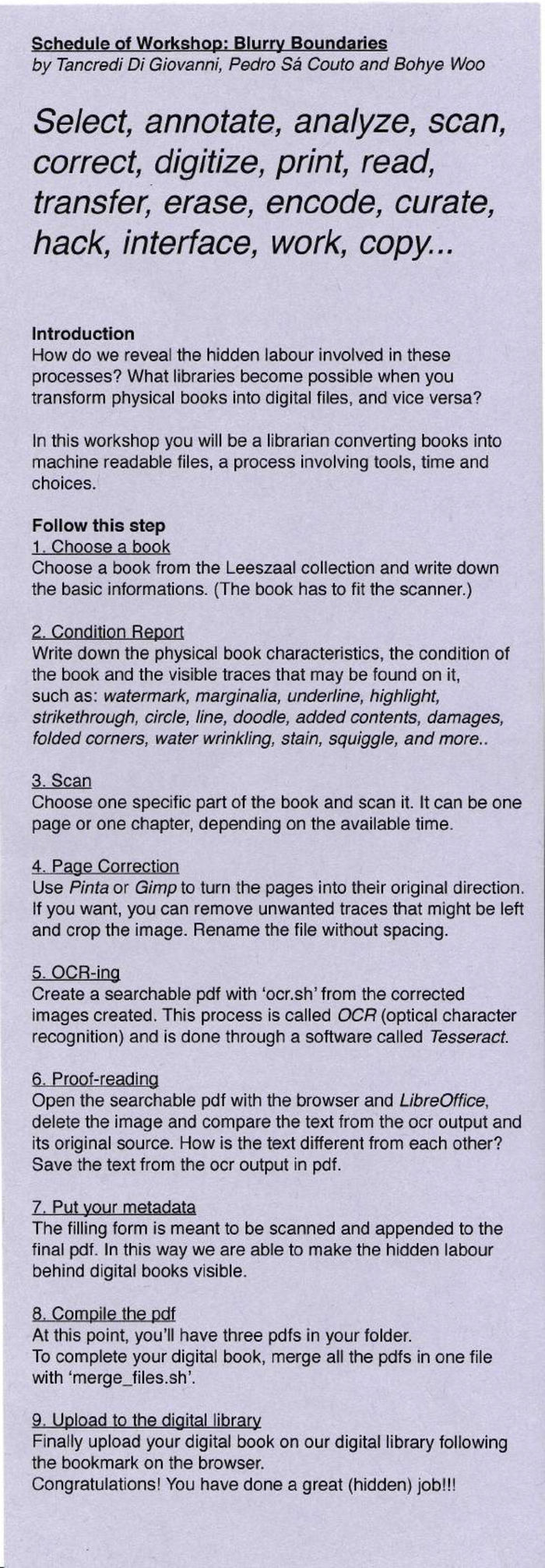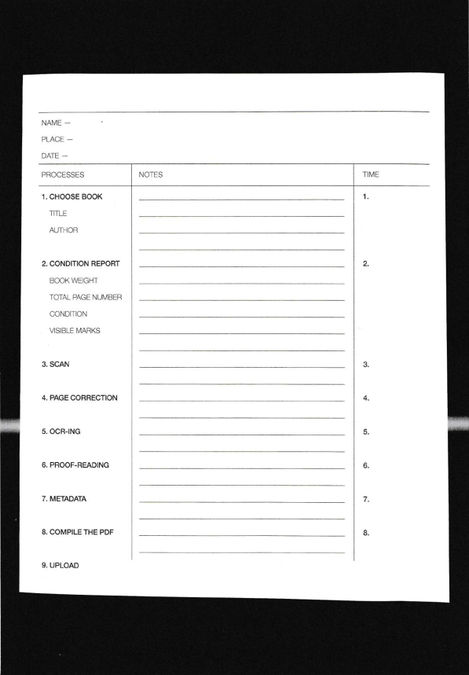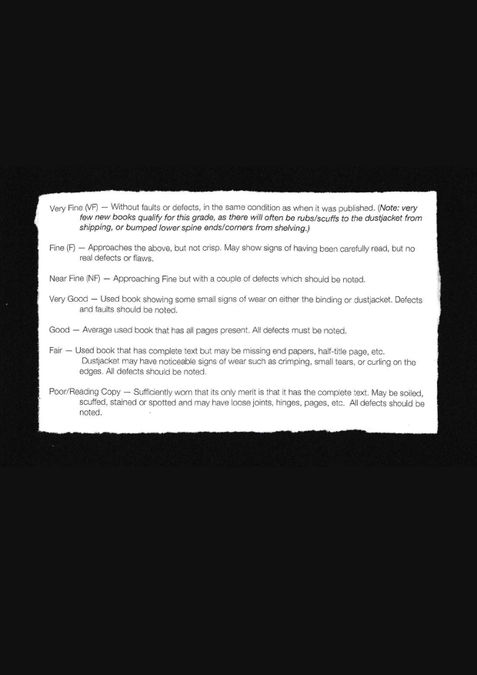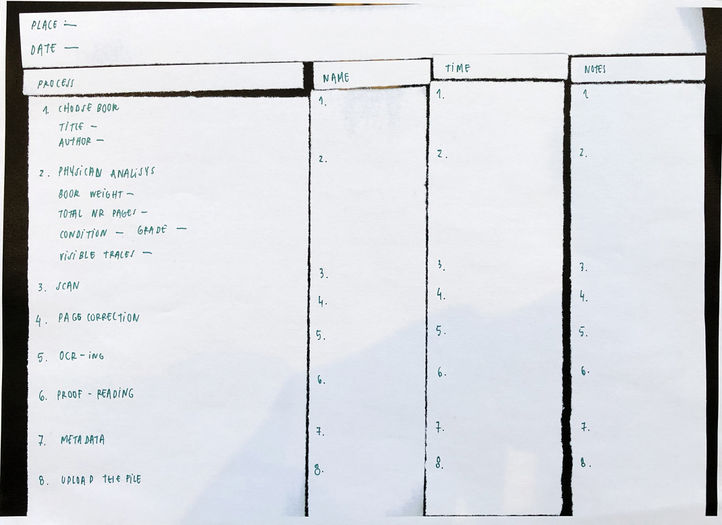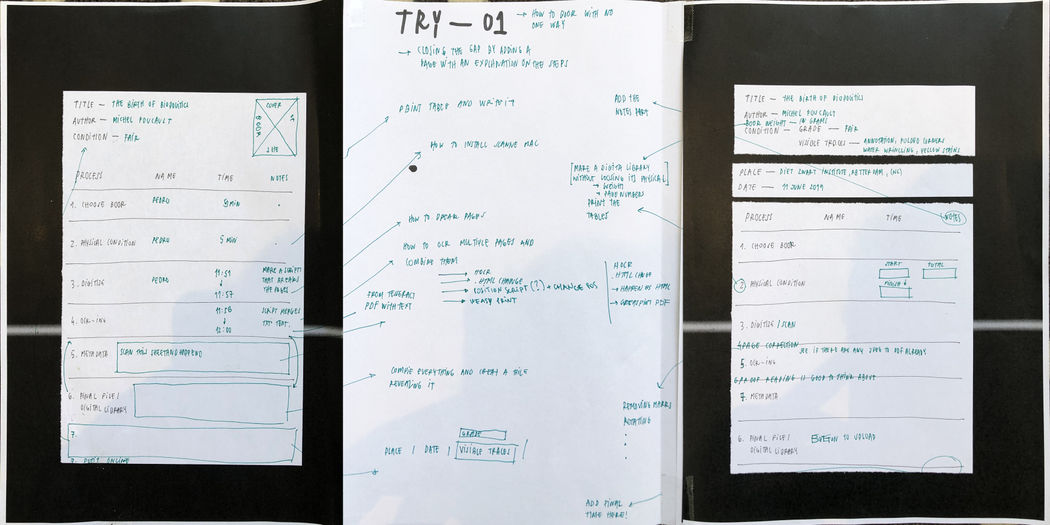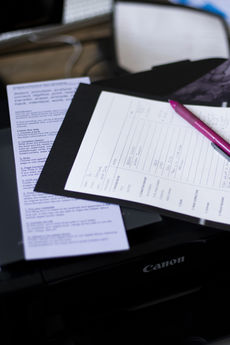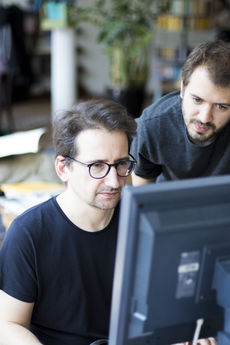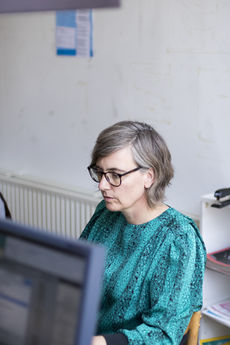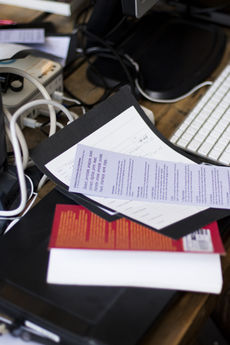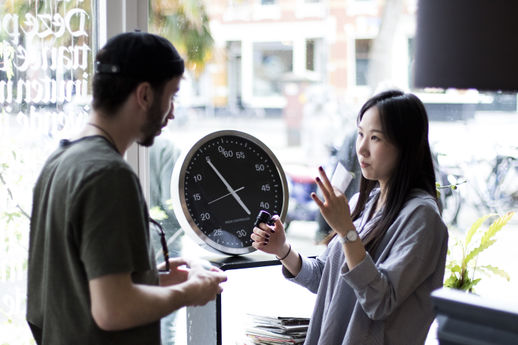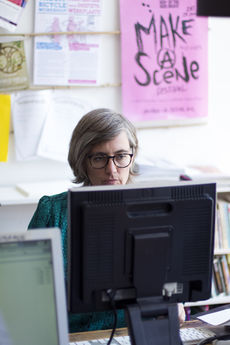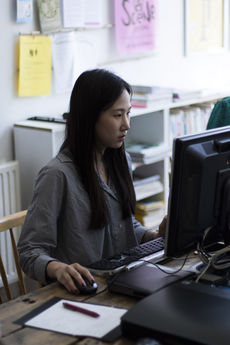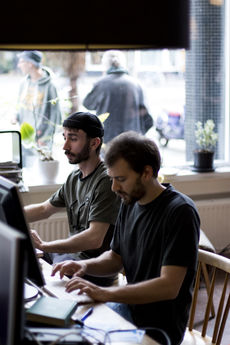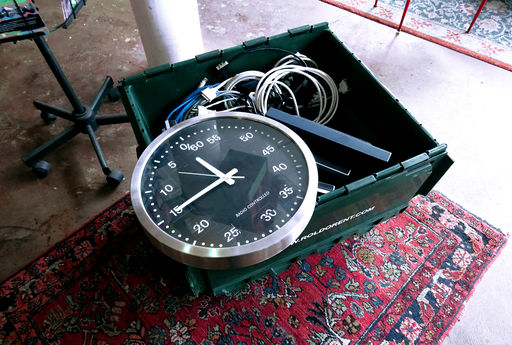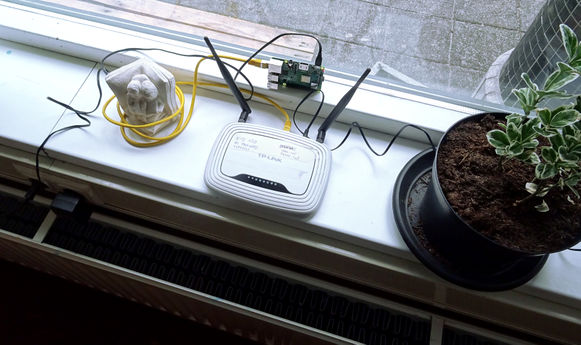|
|
| (88 intermediate revisions by the same user not shown) |
| Line 1: |
Line 1: |
| == Interfacing the law 2019 ==
| | PAD for this semester:https://pad.xpub.nl/p/special_issue_9_pads_index |
| | = Interfacing the law 2019 = |
|
| |
|
| ''Pirate libraries, shadow libraries, piratical text collections, amateur digital libraries, peer produced libraries and how to read them together.'' | | ''Pirate libraries, shadow libraries, piratical text collections, amateur digital libraries, peer produced libraries and how to read them together.'' |
| Line 6: |
Line 7: |
| * Letter 2: [https://torrentfreak.com/images/sci-hub-reply.pdf Alexandra Elbakyan to Mr. Robert W. Sweet] | | * Letter 2: [https://torrentfreak.com/images/sci-hub-reply.pdf Alexandra Elbakyan to Mr. Robert W. Sweet] |
| * Letter 3: [[Media:Dearparticipants.pdf|Dear participants in Interfacing the law!]] | | * Letter 3: [[Media:Dearparticipants.pdf|Dear participants in Interfacing the law!]] |
| <br>
| |
|
| |
| == Schedule ==
| |
|
| |
| === // Week 1 ===
| |
|
| |
| ==== [[Calendars:Networked_Media_Calendar/Networked_Media_Calendar/16-04-2019_-Event_4|Tuesday 16 April]] ====
| |
|
| |
| {{Calendars:Networked_Media_Calendar/Networked_Media_Calendar/16-04-2019_-Event_4}}
| |
|
| |
| ==== [[Calendars:Networked_Media_Calendar/Networked_Media_Calendar/17-04-2019_-Event_1|Wednesday 17 April]] ====
| |
|
| |
| {{Calendars:Networked_Media_Calendar/Networked_Media_Calendar/17-04-2019_-Event_1}}
| |
|
| |
| --------------
| |
|
| |
| Content : What is in the library? How much?
| |
| Users: Who is using / uploading / downloading?
| |
| Catalog: What is the system? How is it organised? How about its ontology?
| |
| Infrastructure: What are technical specs? Software? Hardware?
| |
| Politics: What is the attitude?
| |
| Economy: Sponsors? Donation? Advertising?
| |
| Law: How does it interface?
| |
|
| |
|
| |
| MEMORY OF THE WORLD https://www.memoryoftheworld.org/
| |
|
| |
| Content : What is in the library? How much?
| |
| 136241 books, 16 shown
| |
| Have books 50s - 90s
| |
| Politics-History-Theory, Eastern European, post-communism
| |
| Scanned and uploaded books from "librarians" of this library
| |
|
| |
| Plugin, that you could share from calibre, your local network's library
| |
| Librairians online:
| |
|
| |
| Catalog: What is the system? How is it organised? How about its ontology?
| |
| Using Callibre
| |
| Listed by format/title/tag/date
| |
| Book on their server?
| |
|
| |
| MONOSKOP https://monoskop.org/
| |
| - Monoskop Wiki: selection of different themes
| |
| - Monoskop Log: is a digital library of arts and humanities.
| |
|
| |
| like a wikipedia page
| |
| avant-gardes, media arts and theory and activism
| |
| a blog repository featuring
| |
|
| |
| Of course because its a wiki you can edit as a member
| |
|
| |
| Monoskop is a wiki, and a repository aggregating, documenting and mapping works, artists and intiatives related to the avant-gardes, media arts and theory and activism. Initially it focused on Eastern and Central Europe. Built on a Wiki that everyone can contribute to and scrupulously curated by its spiritus movens Dušan Barok, it provides both an exhaustive, indexical overview of those fields and provides digital access to rare historic finds. In parallel to the wiki, Monoskop maintains a blog repository featuring daily releases of books, journals or other printed archival material, some digitized by Monoskop and some contributed by the users, authors and publishers. Pdfs are available to download, while there are also links to other shadow libraries which host this content.
| |
|
| |
| Pdfs available to download, also redirecting in other (public) libraries that host this content
| |
|
| |
| Monoskop & copyright
| |
| https://monoskop.org/About_Monoskop#Copyrights
| |
|
| |
|
| |
|
| |
|
| |
| PROJECT GUTENBERG
| |
|
| |
| Abstract — Project Gutenberg, initiated in 1971 by Michael Hart, is the world's oldest digital library of "eBooks", that is, books that are available electronically as PDFs, HTML, ePUB and plain text format. The collection has more recently expanded to include audio books, and texts in a variety of languages other than English. On the wiki-based website www.gutenberg.org, more than 58,000 eBooks are indexed by author, title, language and "recently posted". The search function allows users to look for titles by US Library of Congress search terms, as well as by going through Google and Yahoo metadata. The majority of these books are within the public domain and therefore free from copyright restrictions, although undoubtedly there are some that are orphaned by subsequent changes to US copyright terms (which in most cases of published texts, is now 70 years after the death of the author). Due to this, as well as differences in copyright law internationally, the complete legal legitimacy of its collection is in question, despite careful attempts to comply with US copyright law. It is important to note that Project Gutenberg is a project, rather than a single library, with sister affiliations in many countries (Project Gutenberg Australia, Project Gutenberg Europe among many others). This, alongside its non-profit stance (Project Gutenberg accepts donations, and also calls for volunteer help with proofreading and digitization of books, as well as recording audio books) lends moral legitimacy to its online distribution of texts.
| |
|
| |
| Questions —
| |
| Looks like a clasic collection; the interface is classic; based on a wiki; speaks of legitamacy
| |
| Who is responsible and what are they responsible for?
| |
| This is all the stuff that's in the public domain...
| |
| What could be the motivation to make such a library?
| |
|
| |
| What values does it communicate?
| |
| Good. Air of legitimacy; “library of congress search terms” and google to collect information. On this way they seek legitimacy from the on-line and off-line agents.
| |
| What do they mean 'a project'? (is this an agent of legitimacy?) Involves many people; projects into the future; mutable (not set in stone)
| |
|
| |
| What is it filtered out and what are the political implications of that?
| |
| How does the codex form limit what is available?
| |
|
| |
| Who does the library serve?
| |
| user friendly interface;
| |
|
| |
| Also limitations of content, classic collection
| |
| Who is responsible and what are they responsible for?
| |
|
| |
|
| |
| AAAAARG.FAIL
| |
|
| |
| Abstract — Out of the necessity for a library, for artist Sean Dockray's LA-based educational institution called "The Public School", aaaaarg.fail (formerly aaarg.org, then aaaarg.org) is a website that hosts a collection of mostly theory and critical theory texts, and an online forum for members. Access to the collection comes from registering an account (you must be invited by a member first). Members can upload and download texts, as well as request titles via the forum. The changes in the domain name for the library come from repeated copyright infringement allegations from publishers of works that have been made accessible on the site, including the Australian publisher Macmillan. The publisher hired Mark Taylor, a former music industry executive, who was instrumental in bringing forth a cease and desist order against aaarg.org. Dockray later called this "another case where university students are conceived of as consumers, as carriers of debt for everything from degrees to consumer electronics to intellectual property" (http://unprojects.org.au/magazine/issues/issue-4-2/the-future-and-the-public-school/ ).
| |
|
| |
| Questions —
| |
|
| |
| Who does the library serve? (who are the customers?)
| |
| Intellectual snobs.
| |
| You have to be invited
| |
|
| |
| Forum? What affordance does that give?
| |
| Sociability? There is a set of manners
| |
| The forum produces a text (a form of collective annotation); a discussion on the texts in the library. Because you can make requests it is much more personal. You can also select by "most requested", which means that a hierarchy of information is produced within the forum.(by the discussion of the members)
| |
|
| |
| How is it different if you can participate in discussing the content of a library, than just be a viewer-receiver of the content?
| |
|
| |
| Who is responsible and what are they responsible for?
| |
|
| |
| How is it different to be an exclusive member in order to have access to the content of a library, compared to have no restrictions in accessing it?
| |
|
| |
| How does the collection (and discourse around it) represent the members of the library?
| |
| If the library is based on user requests, it's a mirror of the members interests/social status/credentials/ideologies/clout
| |
|
| |
| Does this platform require a certain degree of library literacy and research skills?
| |
|
| |
| Does the background of the librarians affect the content presented in a library?
| |
|
| |
|
| |
| UBUWEB.COM
| |
| Abstract — UbuWeb.com is a large web-based, free, non-commercial resource for avant-garde poetry, music, film, literature and more, founded in 1996 by poet Kenneth Goldsmith. It offers visual, concrete and sound poetry, expanding to include film and sound art mp3 archives. The site's architecture limits retrieval to keyword searching and browsing by media type and artist/project name. In addition, sustainability is a concern for this website as it was never intended to be a permanent archive. Still, there is no comparable commercial source for the content on UbuWeb so it is valuable as a resource for libraries to point users toward so long as librarians are aware of its limitations. It is a library which is ever-expanding in uncanny—and often uncategorizable—directions. Each section has an editor who brings to the site their area of expertise. UbuWeb is not n to any academic institution, instead relying on alliances of interest and benefiting from bandwidth donations from its partnerships with GreyLodge, WFMU, PennSound, The Electronic Poetry Center, The Center for Literary Computing, and ArtMob. UbuWeb was founded in response to the marginal distribution of crucial avant-garde material. It remains non-commercial and operates on a gift economy. UbuWeb ensures educational open access to out-of-print works that find a second life through digital art reprint while also representing the work of contemporaries. It addresses problems in the distribution of and access to intellectual materials.
| |
|
| |
|
| |
| Questions —
| |
| Who does the library serve?
| |
| What could be the motivation to make such a library?
| |
| What values does it communicate?
| |
| How can the material available in a library shape the discourse around a particular field?
| |
|
| |
| MONOSKOP
| |
| Abstract — Monoskop is a Wiki and a Log (repository), aggregating, documenting and mapping works, artists and initiatives related to the avant-gardes, media arts, theory and activism. Initially it focused on Eastern and Central Europe. Built on a Wiki that everyone can contribute to and thoroughly curated by Dušan Barok, who initiated the project, Monoskop provides both an exhaustive, indexical overview of studies of art, media and the humanities, and provides digital access to rare historic finds. In parallel to the Wiki, Monoskop maintains a blog repository featuring daily releases of books, journals or other printed archival material, some digitized by Monoskop and some contributed by the users, authors and publishers. Pdfs are available to download directly, but there are also links to other shadow libraries, which host relevant content. Monoskop runs on MediaWiki software, and is hosted by the Sanchez free art server, maintained by Multiplace. The largest part of the content is formed by top 500 thematic tags from Monoskop Log, each linking full-text publications, mostly books, while some themes also have dedicated wiki pages. The 100 persons--artists, makers and writers--are linked to wiki pages consisted primarily from chronologies and bibliographies of their work, some accompanied with biographies.
| |
|
| |
|
| | <gallery mode="packed" heights="300px"> |
| | File:Shadow-library-idea-01.JPG |
| | File:Shadow-library-idea-02.JPG |
| | File:Shadow-library-idea-03.JPG |
| | </gallery> |
| | [[File:WORKSHOP_INTERFACING_THE_LAW.PNG||600px|frameless|center]] |
|
| |
|
| Questions —
| |
| Who does the library serve?
| |
| What could be the motivation to make such a library?
| |
| What values does it communicate?
| |
| How is it different if you can participate in editing the content of a library, compared to just be a viewer-receiver of the content?
| |
| How is it valuable to have carefully and thoroughly edited content in a library?
| |
| How can a shadow library defend itself legally, related to the kind of content it provides?
| |
|
| |
|
| MEMORY OF THE WORLD
| | == WORKSHOP WITH FEMKE == |
| Abstract — Memory of the World is a web-based public library, where you find books in PDFs, ePUB provided by the individual online librarians. The library concentrate on the subject of politics-history theory, eastern European, post-communism between 50s and 90s indexed by author, title, tag, date and format. Currently, there are 136,255 books available from 19 librarians online on the web, it might change when more librarians join the network or when they loose the connection. It has the vision that the world’s documentary heritage belongs to all, should be fully preserved and protected for all and, with due recognition of cultural mores and practicalities, should be permanently accessible to all without hindrance. When the librarians are online, you can access to the so-called "a personal digital library" where they randomly share the selection of books. The selection of books are depending on the librarian's choice, which they provides information such as title, authors, publisher, and small description with PDFs or EPUB. The library is publicly open, although the librarian's personal information are perfectly secured. You can use a plugin shared from Calibre, an open-source suite of e-book software, from their local network's library.
| |
| | |
| Questions —
| |
| Who does the library serve?
| |
| What does ownership and curatorship mean in a shadow library?
| |
| How does it make a difference to transfer the role and the presence of a "librarian" into a web library?
| |
| Does the background of the librarian affect the content presented on a library?
| |
| | |
| | |
| | |
| | |
| Questions
| |
| Who does the library serve?
| |
| What could be the motivation to make such a library?
| |
| What values does it communicate?
| |
| Who is responsible and what are they responsible for?
| |
| What is it filtered out and what are the political implications of that?
| |
|
| |
|
| ==== [[Calendars:Networked_Media_Calendar/Networked_Media_Calendar/18-04-2019_-Event_1|Thursday 18 April]] ==== | | ==== [[Calendars:Networked_Media_Calendar/Networked_Media_Calendar/18-04-2019_-Event_1|Thursday 18 April]] ==== |
| | | 11:00 Intro: m-e-t-h-o-d-o-l-o-g-i-e-s (or not)<br> |
| {{Calendars:Networked_Media_Calendar/Networked_Media_Calendar/18-04-2019_-Event_1}}
| | 11:15 Q + Q<br> |
| | 12:00 Response-ability<br> |
| | 13:00 Lunch / move to Museumpark<br> |
| | 14:00 Phenomenal cartography<br> |
| | 15:30 s\p\e\l\l\i\n\g and/or Diffractive reading and/or Renaming|reframing<br> |
| | 17:00 Feedback + next session<br> |
|
| |
|
| <gallery mode="traditional"> | | <gallery mode="traditional"> |
| Line 170: |
Line 33: |
| Image:DSC00720.JPG | | Image:DSC00720.JPG |
| </gallery> | | </gallery> |
| <small>Rozentuin, 18 April</small>
| |
|
| |
|
| [[Media:Kit.pdf|Download kit: m-e-t-h-o-d-o-l-o-g-i-e-s (or not)]] | | [[Media:Kit.pdf|Download kit: m-e-t-h-o-d-o-l-o-g-i-e-s (or not)]] |
|
| |
|
| === // Week 2 === | | ==Workshop with Bodo Balasz== |
|
| |
|
| ==== Study Week ==== | | <gallery mode="packed" heights="300px"> |
| | File:Workshop with Bodo Balasz 1.png|text |
| | </gallery> |
|
| |
|
| === // Week 3 === | | <gallery mode="packed" heights="400px"> |
| | File:Workshop with Bodo Balasz 2.png|text |
| | </gallery> |
|
| |
|
| ==== May vacation ==== | | <gallery mode="packed" heights="600px"> |
| | File:Workshop with Bodo Balasz 3.png|text |
| | </gallery> |
|
| |
|
| === // Week 4 === | | <gallery mode="packed" heights="600px"> |
| | File:Workshop with Bodo Balasz 4.png|text |
| | </gallery> |
|
| |
|
| ==== [[Calendars:Networked_Media_Calendar/Networked_Media_Calendar/07-05-2019_-Event_2|Tuesday 7 May]] ==== | | <gallery mode="packed" heights="400px"> |
| | File:Workshop with Bodo Balasz 5.png|text |
| | </gallery> |
|
| |
|
| {{Calendars:Networked_Media_Calendar/Networked_Media_Calendar/07-05-2019_-Event_2}}
| | <gallery mode="packed" heights="400px"> |
| | File:Workshop with Bodo Balasz 6.png|text |
| | </gallery> |
|
| |
|
| ==== [[Calendars:Networked_Media_Calendar/Networked_Media_Calendar/08-05-2019_-Event_1|Wednesday 8 May]] ==== | | ==Travel to Riedveld Library== |
| | https://pad.constantvzw.org/p/rietveld_library <br> |
| | http://catalogue.rietveldacademie.nl/about.html |
|
| |
|
| {{Calendars:Networked_Media_Calendar/Networked_Media_Calendar/08-05-2019_-Event_1}}
| | ==Workshop with Eva Weynmayr== |
| | Borrowing / Poaching / Plagiarising / Pirating / Stealing / Gleaning / Referencing / Leaking / Copying / Imitating / Adapting / Faking / Paraphrasing / Quoting / Reproducing / Using / Counterfeiting / Repeating / Translating / Cloning / Silencing / Editing / Omitting / Reducing / Appending / Redirecting / Recontextualising / Focusing / (Faithfully) Reproducing / Caring / Reformatting / Bootlegging / Reframing / Retracing |
|
| |
|
| ==== [[Calendars:Networked_Media_Calendar/Networked_Media_Calendar/09-05-2019_-Event_4|Thursday 9 May]] ==== | | ===BOOK 1 — Feminism/Postmodernism=== |
| | <gallery mode="packed" heights="300px"> |
| | File:Book-bohye woo.JPG |
| | </gallery> |
|
| |
|
| {{Calendars:Networked_Media_Calendar/Networked_Media_Calendar/09-05-2019_-Event_4}}
| | #Reproducing (but not exactly.) Producing again - not reproducing. improving materiality (imposition, bindng), adding value<br> |
| | # Localizing<br> |
| | #Crafting |
|
| |
|
| ==== [[Calendars:Networked_Media_Calendar/Networked_Media_Calendar/10-05-2019_-Event_1|Friday 10 May]] ====
| | This book was photocopied and assembled in a copy store, when asked by a client |
| | not imitating, or copying. the design of the cover is clearly different. it doesn't try to reproduce perfectly, or faking it. |
| | There are design decisins made. Spine writing updide down. (recultured) |
|
| |
|
| {{Calendars:Networked_Media_Calendar/Networked_Media_Calendar/10-05-2019_-Event_1}}
| | What is the price of these books? What is the price of a reprodution? |
| | Original book: 35dollars, in amazon.us |
|
| |
|
| <gallery mode="traditional">
| | *Cover |
| Image:DSC00865.JPG
| | Wouldn't it be easy to photocopy the whole cover? It was a choice to only have the title and other elements, probably took more time if they had to use a paper to hide the other elements in the photocopy machine. |
| Image:DSC00871.JPG
| | Back cover is also very different: no information about the author, or short biography. the emphasis on the author is removed. |
| Image:DSC00872.JPG
| |
| </gallery>
| |
| <small>Reading with Eva Weinmayr, 10 May</small>
| |
|
| |
|
| === // Week 5 ===
| | *Spine |
| | Authoratitive book has title from top to bottom. |
| | Reproduced one has from bottom to top. it's crafted. (Crafting) |
|
| |
|
| ==== [[Calendars:Networked_Media_Calendar/Networked_Media_Calendar/13-05-2019_-Event_1|Monday 13 May]] ====
| | *Format |
| | Printed Size, Paper, Binding are slighly different. |
| | deliberate decision: bit smaller size than A5: maybe they chose this size of their convenience for printing? |
|
| |
|
| {{Calendars:Networked_Media_Calendar/Networked_Media_Calendar/13-05-2019_-Event_1}}
| | *Digital copy from LibGen: |
| | The cover is same |
| | The contents are photocopied. |
| | There is no Back-cover. |
|
| |
|
| ==== [[Calendars:Networked_Media_Calendar/Networked_Media_Calendar/14-05-2019_-Event_1|Tuesday 14 May]] ====
| | In the authoritative copy there's a paper reminding the person who borrowed the book to put it back, this in 2004. |
|
| |
|
| {{Calendars:Networked_Media_Calendar/Networked_Media_Calendar/14-05-2019_-Event_1}}
| | ===BOOK 2 — A Room of One's Own=== |
| | #Adapting |
| | #Caring |
| | #Adding |
| | #Quoting |
| | #Inserting |
| | #influencing |
| | #opinioning |
| | #bringing into conversation |
| | #layering |
| | #merging |
|
| |
|
| ==== [[Calendars:Networked_Media_Calendar/Networked_Media_Calendar/16-05-2019_-Event_3|Thursday 16 May]] ====
| |
|
| |
|
| {{Calendars:Networked_Media_Calendar/Networked_Media_Calendar/16-05-2019_-Event_3}}
| | marginal notes, very simillar approach with the annotated text we were doing in Steve's class |
| | How many people were involved? |
|
| |
|
| === // Week 6 ===
| | You can see the photocopy marks. |
|
| |
|
| ==== [[Calendars:Networked_Media_Calendar/Networked_Media_Calendar/21-05-2019_-Event_2|Tuesday 21 May]] ====
| | The notes are all readable in terms of having their own space, they are not all on top of each other. |
| | How was this done? Someone designed and edited the notes, or are all the authors using the same book? |
| | Is this one book annotated by different people, or many books annotated by the owner of each copy of the book? |
|
| |
|
| {{Calendars:Networked_Media_Calendar/Networked_Media_Calendar/21-05-2019_-Event_2}}
| | Very subjective vision, your reading is being interrupted by others' thoughts. |
| | The authorship is shared, collective way of reading and writing: Authorship is participative. Interdependent. |
| | You trasmit your knowledge, the reading is shared |
|
| |
|
| ==== [[Calendars:Networked_Media_Calendar/Networked_Media_Calendar/22-05-2019_-Event_1|Wednesday 22 May]] ====
| | Cover |
| | looks like Reclam publisher, but different. Just like the Feminism/Postmodernism cover of the copy, it doesn't try to reproduce perfectly, or faking it. |
|
| |
|
| {{Calendars:Networked_Media_Calendar/Networked_Media_Calendar/22-05-2019_-Event_1}}
| |
|
| |
|
| === // Week 7 ===
| |
|
| |
|
| ==== [[Calendars:Networked_Media_Calendar/Networked_Media_Calendar/27-05-2019_-Event_1|Monday 27 May]] ====
| |
|
| |
|
| {{Calendars:Networked_Media_Calendar/Networked_Media_Calendar/27-05-2019_-Event_1}}
| | <gallery mode="traditional"> |
| | | Image:DSC00865.JPG |
| ==== [[Calendars:Networked_Media_Calendar/Networked_Media_Calendar/29-05-2019_-Event_2|Wednesday 29 May]] ====
| | Image:DSC00871.JPG |
| | | Image:DSC00872.JPG |
| {{Calendars:Networked_Media_Calendar/Networked_Media_Calendar/29-05-2019_-Event_2}}
| | </gallery> |
| | |
| === // Week 8 ===
| |
|
| |
|
| | ==Workshop with Dusan Barok== |
| ==== [[Calendars:Networked_Media_Calendar/Networked_Media_Calendar/04-06-2019_-Event_2|Tuesday 4 June]] ==== | | ==== [[Calendars:Networked_Media_Calendar/Networked_Media_Calendar/04-06-2019_-Event_2|Tuesday 4 June]] ==== |
|
| |
|
| {{Calendars:Networked_Media_Calendar/Networked_Media_Calendar/04-06-2019_-Event_2}} | | {{Calendars:Networked_Media_Calendar/Networked_Media_Calendar/04-06-2019_-Event_2}} |
|
| |
|
| ==== [[Calendars:Networked_Media_Calendar/Networked_Media_Calendar/05-06-2019_-Event_1|Wednesday 5 June]] ==== | | =Blurry Boundaries Workshop= |
| | '''Blurry Boundaries Wiki Page:''' [[Blurry Boundaries|Blurry Boundaries]] |
| | [[File:workshop.jpg||700px|frameless|center]] |
| | [[File:purplepaper.jpg||700px|frameless|center]] |
|
| |
|
| {{Calendars:Networked_Media_Calendar/Networked_Media_Calendar/05-06-2019_-Event_1}}
| | ------- |
| | ==Introduction== |
| | Welcome to our {frictions, gain or loss} workshop. When one medium {physical book} is transferred to another {digital book}, situations that happen in the process are unintentionally invisible. |
| | Through the workshop, we will experience what are the steps necessary to build a phygital {physical-digital} library and reveal meticulously on what is the hidden labour and work process behind it. |
| | With this activity, we aim to reflect upon the physicality of a book when it is converted into a digital file, and vice versa. |
| | During the workshop we will question together on how we keep what is lost during these steps and how we could increase the life of the source. |
|
| |
|
| === // Week 9 ===
| | -------- |
| | Select, annotate, analyze, scan, correct, digitize, print, read, transfer, erase, encode, curate, hack, interface, work, copy... |
|
| |
|
| ==== [[Calendars:Networked_Media_Calendar/Networked_Media_Calendar/11-06-2019_-Event_1|Tuesday 11 June]] ====
| | What libraries become possible when you transform physical books into digital files, and vice versa? When a digital copy of a book is made for a digital library specific steps are followed. Each of these steps requires a decision – to use tools and to spend time. The work involved in digitising a book is invisible and the digital version often loses its connection to the physical book and the library it came from. |
|
| |
|
| {{Calendars:Networked_Media_Calendar/Networked_Media_Calendar/11-06-2019_-Event_1}}
| | We aimed to reflect upon different topics such as: |
| | the friction between the physical and digital book, what is lost and what is gained when you pass from one format to another. |
| | the physicality and contingency of these passages, the labor involved to produce those copies and its hidden position. |
| | the mindset of the librarian who has to choose how to produce the digital library, which format to chose and what kind of information to reveal. |
| | the possibility of a digital library which provides the history of the book and the people involved in its life. |
| | annotations which reveal information and challenge the common, static idea of the book. |
| | ---------- |
|
| |
|
| ==== [[Calendars:Networked_Media_Calendar/Networked_Media_Calendar/12-06-2019_-Event_4|Wednesday 12 June ]] ==== | | ==Tools== |
| | '''Hardware''' <br> |
| | Computers - 4 linux/2 mac/1 win |
| | Scanners - 2 |
| | Printer - 1 Canon mg3600 (Simon) |
| | <br><br> |
| | '''Software/tools'''<br> |
| | Gimp |
| | makescan.sh (OCR>PDF) |
| | convertpdf.sh (convert the meta.jpeg to .pdf)???? |
| | makepdf.sh (merge pdfs) |
| | Digital Library (php uploads + directory list) |
| | <br><br> |
| | '''Others'''<br> |
| | *forms + condition list + info |
| | scale |
| | papers |
| | printer's toner |
| | pens |
| | stapler |
| | bell |
| | timer |
|
| |
|
| {{Calendars:Networked_Media_Calendar/Networked_Media_Calendar/12-06-2019_-Event_4}}
| | ==Explanation== |
| | In the papers that we are giving you, there is the hidden labour's form that you have to compile while following each step. It is important to write down the starting time of each process to notice how much time do you needed for each step. |
| | In the end we are going to scan and append it to the digital book (to produce a file with those, oherwise hidden, information of the labour involved to prduce it). The final file will contain the readable pdf, the text produced by trying to convert the scanned image into text and a copy of the hidden labour's form. |
|
| |
|
| === // Week 10 ===
| | Each of you will have a computer with the main tools we are going to use on the purple sheet there is an explaination of each step to follow to help you during the process of compiling the form.<br><br> |
| | 1. For first we are going to ask you to choose a book from Leeszaal, just make sure it fits the scanner. <br> |
| | 2. The second step consist in the condition report where we are going to analyze the physical condition of the book. <br> |
| | *There is a scale to check the weight of the book and meant to be compared with the size of the final digital file.<br> |
| | *A chart provided by ebay when you want to sell a book. There you can check the physical condition of the book.<br> |
| | *And on the purple sheet, there is a list of traces as marginalia, underlines and other particular marks that you could find on your book.<br> |
| | 3. At the third step, starts the digitalization of the book, here you can chose one or more pages to scan that will become a .jpg image to be renamed and saved in the workshop_folder on the desktop. <br><br> |
| | To run the scanner you can run the 'scan.sh' icon in the folder.<br> |
| | 4. Then you can open the image with Pinta (a linux version of paint) or Gimp and correct the image. For example turn it in its original direction, crop it or delete unwanted marks. Then you can save it again in the folder.<br> |
| | 5. Now it starts the most complicate step, the translation of the image into text. This process can be done manually but actually there are softwares called OCR which optically recognize the characters in the image. <br> |
| | By running the file called 'ocr.sh' in the folder, the software will automatically start and convert your .jpg into a readable pdf. You can open the pdf with the browser to see how it looks like.<br> |
| | 6. Unfortunately the ocr process is not perfect and usually needs a further step to correct it. To see what is the actual text of the ocr ouput, you can open your pdf file with LibreOffice writer, delete the image and reveal the text hidden behind it. <br> |
| | Then you can compare it with the original pdf and save this text in a new pdf inside your folder.<br> |
| | 7. At this point we will use the concept of metadata, set of data that describes and gives information about other data. In fact the form will act exactly as a dataset containing your hidden labour. <br> |
| | To make it visible we will ask you to scan it and save it as a pdf into your folder. <br> |
| | 8. After that you can run the 'merge_files.sh' in your folder, it will produce your final pdf that you have to rename. It will contain: |
| | *the pdf produced by the ocr |
| | *the pdf with the text of the ocr output |
| | *the pdf of the hidden labour's form<br> |
| | 9. The last step will be to print your work and to upload it in our server which you will find on the bookmarks of the browser. |
| | This small digital library that we are going to create is meant to share our works and document the workshop. It will be online in the special issue website |
|
| |
|
| ==== [[Calendars:Networked_Media_Calendar/Networked_Media_Calendar/17-06-2019_-Event_1|Monday 17 June]] ====
| |
|
| |
|
| {{Calendars:Networked_Media_Calendar/Networked_Media_Calendar/17-06-2019_-Event_1}}
| | ==Final Labour Form== |
| | <gallery mode="packed" heights="450px"> |
| | File:form_fill.jpg |
| | File:condition_chart.jpg |
| | </gallery> |
|
| |
|
| ==== [[Calendars:Networked_Media_Calendar/Networked_Media_Calendar/20-06-2019_-Event_2|Thursday 20 June]] ==== | | == Labour form sketches== |
| | <gallery mode="packed" heights="350px"> |
| | File:Worshopsheet04.jpg |
| | File:Worshopsheet01.jpg |
| | </gallery> |
|
| |
|
| {{Calendars:Networked_Media_Calendar/Networked_Media_Calendar/20-06-2019_-Event_2}}
| |
|
| |
|
| == Resources == | | ==A Reader from the Workshop== |
| | Workshop reader.pdf |
|
| |
|
| === Sample libraries === | | ==Photos== |
| | | <gallery mode="packed" heights="230px"> |
| * <nowiki>#icanhazpdf</nowiki> [https://twitter.com/hashtag/icanhazpdf?src=hash https://twitter.com/hashtag/icanhazpdf?src=hash]
| | File:00002.jpg |
| * aaaaarg [http://aaaaarg.fail/ http://aaaaarg.fail]
| | File:00003.jpg |
| * Bibliotheca [http://bibliotecha.info/ http://bibliotecha.info/]
| | File:00004.jpg |
| * Clockwise libraries [https://clockwise3rldkgu.onion.to/ https://clockwise3rldkgu.onion]
| | File:00006.jpg |
| * Library Genesis [http://gen.lib.rus.ec http://gen.lib.rus.ec]
| | File:00007.jpg |
| * Memory of the world [http://library.memoryoftheworld.org/ http://library.memoryoftheworld.org]
| | File:00008.jpg |
| * Monoskop [http://monoskop.org/ http://monoskop.org]
| | File:00009.jpg |
| * On Our Backs [http://voices.revealdigital.com/cgi-bin/independentvoices?a=cl&cl=CL1&sp=BEBJBJCA&ai=1&e=-------en-20--1--txt-txIN---------------1 http://voices.revealdigital.com/cgi-bin/independentvoices?a=cl&cl=CL1&sp=BEBJBJCA&ai=1&e=-------en-20--1--txt-txIN---------------1]
| | File:000010.jpg |
| * Project Gutenberg [http://gutenberg.org/ http://gutenberg.org]
| | File:000013.jpg |
| * Radical Militant Library (Jotunbane’s Reading Club) [https://c3jemx2ube5v5zpg.onion.to/ https://c3jemx2ube5v5zpg.onion]
| | File:000014.jpg |
| * Sci-hub [http://sci-hub.io/ http://sci-hub.tw/]
| | </gallery> |
| * Textz.com [http://www.textz.com/ http://www.textz.com]
| |
| * [https://bibliotik.me/ https://bibliotik.me]
| |
| * volafile.io
| |
| * <nowiki>#bookz on IRCHighway/undernet</nowiki>
| |
| * The Piratebay @ Worm [http://thepiratebay.worm.org/ http://thepiratebay.worm.org]
| |
| * UBU-web [http://ubu.com/ http://ubu.com]
| |
| * [http://pzwiki.wdka.nl/mediadesign/XPPL XPPL]
| |
| | |
| === Reading === | |
| | |
| * Weinmayr, Eva (2019): "[[Media:Confronting_Authorship_Published_with_content_page--Whose_book_is_it_anyway.pdf|Confronting Authorship, Constructing Practices (How Copyright is Destroying Collective Practice]]" in: ''Whose Book is it Anyway? A View from Elsewhere on Publishing, Copyright and Creativity''. Edited by Janis Jefferies and Sarah Kember
| |
| * Laurie Allen, Balázs Bodó, Chris Kelty (2018): ''Guerilla Open Access'' https://hcommons.org/deposits/item/hc:19825/
| |
| * Bodó, Balázs (2015): ''Libraries in the post-scarcity era''. in: Porsdam (ed): Copyrighting Creativity: Creative values, Cultural Heritage Institutions and Systems of Intellectual Property, Ashgate [https://pure.uva.nl/ws/files/2341818/162448_Libraries_in_the_post_scarcity_era.pdf https://pure.uva.nl/ws/files/2341818/162448_Libraries_in_the_post_scarcity_era.pdf]
| |
| * Bodó, Balázs (2019): ''The science of piracy, the piracy of science. Who are the science pirates and where do they come from'' [http://copyrightblog.kluweriplaw.com/2019/03/06/the-science-of-piracy-the-piracy-of-science-who-are-the-science-pirates-and-where-do-they-come-from-part-1/ Part I] + [http://copyrightblog.kluweriplaw.com/2019/03/21/the-science-of-piracy-the-piracy-of-science-who-are-the-science-pirates-and-where-do-they-come-from-part-2/ Part II]
| |
| * Weinmayr, Eva (2019): ''[[Media:Confronting_Authorship_Published_with_content_page--Whose_book_is_it_anyway.pdf|Confronting Authorship, Constructing Practices (How Copyright is Destroying Collective Practice)]]'' in: Whose Book is it Anyway? A View from Elsewhere on Publishing, Copyright and Creativity. Edited by Janis Jefferies and Sarah Kember
| |
| * Dockray, Sean (2017): ''Interface, Access, Loss'' (notes for a talk) [http://www.academia.edu/11966098/Interface_Access_Loss http://www.academia.edu/11966098/Interface_Access_Loss]
| |
| * Elbakyan, Alexandra (2016): ''Why Science is Better with Communism? The Case of Sci-Hub ''(transcript)'' ''[https://openaccess.unt.edu/symposium/2016/info/transcript-and-translation-sci-hub-presentation https://openaccess.unt.edu/symposium/2016/info/transcript-and-translation-sci-hub-presentation]
| |
| * Liang, Lawrence (2011): ''Beyond Representation: The Figure of the Pirate.'' in: Access to Knowledge in the Age of Intellectual Property [https://library.memoryoftheworld.org/b/DAvrgk52aetZ8LXC3T18zKc3Tp5gSVcBpplXF6QTaRVpxDJ3 https://library.memoryoftheworld.org/b/DAvrgk52aetZ8LXC3T18zKc3Tp5gSVcBpplXF6QTaRVpxDJ3] p.353-354
| |
| * Maigret, Nicolas & Roszkowska, Maria (2015): ''Chapter 2: Insider Perspective The Warez Scene ''in: The Pirate Book [http://thepiratebook.net/ http://thepiratebook.net]
| |
| * Mars, Marcell, Zarroug, Manar & Tomislav Medak (2015): ''Public Library'' [http://library.memoryoftheworld.org/b/VG3cDMIz71e2XFDqYEBSat1erDCbmCz9cv2xuitazr_oJsRX http://library.memoryoftheworld.org/b/VG3cDMIz71e2XFDqYEBSat1erDCbmCz9cv2xuitazr_oJsRX]
| |
| * Meister, Andre (2013): ''Interviews with e-book pirates'' on: Netzpolitik.org [https://netzpolitik.org/2013/interviews-with-e-book-pirates-the-book-publishing-industry-is-repeating-the-same-mistakes-of-the-music-industry https://netzpolitik.org/2013/interviews-with-e-book-pirates-the-book-publishing-industry-is-repeating-the-same-mistakes-of-the-music-industry]
| |
| * ''A users guide to <del>demanding</del> the impossible'' https://artsagainstcuts.files.wordpress.com/2010/12/users-guide-to-the-impossible-web-version.pdf
| |
| * Alice Corble and Sara Wingate Gray, ''Back to the Future! Re-visioning 21st Century Public Libraries via a Journey through Time and Space – The Seven Ages of the Librarian in Graphic Novel Style'' in: ''Sarai Reader: projections'' http://archive.sarai.net/files/original/457a6e7bde8cd1b674b8cea8e94eedea.pdf
| |
| * ''Evil Media'', Matthew Fuller & Andrew Goffey (Chapter: ''Togetherness'') https://library.memoryoftheworld.org/b/wASHWAtKve4HTCL0VCsKJrlRLlwnkk0hf9uD9TDMIgcDwuGf
| |
| * E-mail 'conversation' between Judith Butler and Athena Athanasiou in ''Dispossession: The Performative in the Political'' (Chapter 20: ''The university, the humanities, and the book bloc'' and Chapter 21: ''Spaces of appearance, politics of exposure'') https://monoskop.org/images/1/1f/Dispossession_The_Performative_in_the_Political.pdf
| |
| * Interview by Stevphen Shukaitis with Stefano Harvey and Fred Moten in ''The Undercommons, Fugitive planning and black study'' (page 106-115) http://www.minorcompositions.info/wp-content/uploads/2013/04/undercommons-web.pdf
| |
| * ''A book bloc's genealogy'' https://libcom.org/library/book-bloc%E2%80%99s-genealogy
| |
| | |
| === Video + film fragments ===
| |
| | |
| * Brian Knappenberger, ''The Internet's Own Boy: The Story of Aaron Swartz'' (2014) "follows the story of programming prodigy and information activist Aaron Swartz (...) a personal story about what we lose when we are tone deaf about technology and its relationship to our civil liberties." https://archive.org/details/TheInternetsOwnBoyTheStoryOfAaronSwartz
| |
| * Cornelia Sollfrank, ''Giving What You Don't Have'' (2012-2015) "I realised how limited the discourse on appropriation is and shifted the question from what artists can TAKE, to the question of what artists can GIVE, in the sense of what they can contribute to the free circulation of art and culture." http://artwarez.org/projects/GWYDH/ (interview with Andrea Francke, Eva Weinmayr, Piracy Project)
| |
| * ''Welcome to the scene, Episode 01'' (2004) "They are revered, reviled, hunted and admired. No one knows who they are - at least, not as far as they know." http://www.welcometothescene.com/
| |
| * Jamie King, ''Steal this film II'' (2007) "If Steal this film II proves at all useful in bringing new people into the leagues of those now prepared to think 'after intellectual property', think creatively about the future of distribution, production and creativity, we have achieved our main goal." http://footage.stealthisfilm.com/browse (interview with Lawrence Liang)
| |
| * Simon Klose, TPB AFK: ''The Pirate Bay Away from Keyboard'' (2013) "How did Tiamo, a beer crazy hardware fanatic, Brokep a tree hugging eco activist and Anakata, a paranoid cyber libertarian, get the White House to threaten the Swedish government with trade sanctions?" https://www.youtube.com/watch?v=eTOKXCEwo_8
| |
| | |
| === Previous editions ===
| |
| | |
| * http://pzwiki.wdka.nl/mediadesign/Interfacing_the_law_(2017)
| |
| * http://pzwiki.wdka.nl/mediadesign/Interfacing_the_law_(2018)
| |
| | |
| | |
| <small>This page (?) is copyleft Constant (?) 2017, available under a Free Art Licence http://artlibre.org/licence/lal/en/</small>
| |
| | |
| [[Category:XPUB]]
| |
| [[Category:Special Issue]]
| |
PAD for this semester:https://pad.xpub.nl/p/special_issue_9_pads_index
Interfacing the law 2019
Pirate libraries, shadow libraries, piratical text collections, amateur digital libraries, peer produced libraries and how to read them together.
WORKSHOP WITH FEMKE
11:00 Intro: m-e-t-h-o-d-o-l-o-g-i-e-s (or not)
11:15 Q + Q
12:00 Response-ability
13:00 Lunch / move to Museumpark
14:00 Phenomenal cartography
15:30 s\p\e\l\l\i\n\g and/or Diffractive reading and/or Renaming|reframing
17:00 Feedback + next session
Download kit: m-e-t-h-o-d-o-l-o-g-i-e-s (or not)
Workshop with Bodo Balasz
Travel to Riedveld Library
https://pad.constantvzw.org/p/rietveld_library
http://catalogue.rietveldacademie.nl/about.html
Workshop with Eva Weynmayr
Borrowing / Poaching / Plagiarising / Pirating / Stealing / Gleaning / Referencing / Leaking / Copying / Imitating / Adapting / Faking / Paraphrasing / Quoting / Reproducing / Using / Counterfeiting / Repeating / Translating / Cloning / Silencing / Editing / Omitting / Reducing / Appending / Redirecting / Recontextualising / Focusing / (Faithfully) Reproducing / Caring / Reformatting / Bootlegging / Reframing / Retracing
BOOK 1 — Feminism/Postmodernism
- Reproducing (but not exactly.) Producing again - not reproducing. improving materiality (imposition, bindng), adding value
- Localizing
- Crafting
This book was photocopied and assembled in a copy store, when asked by a client
not imitating, or copying. the design of the cover is clearly different. it doesn't try to reproduce perfectly, or faking it.
There are design decisins made. Spine writing updide down. (recultured)
What is the price of these books? What is the price of a reprodution?
Original book: 35dollars, in amazon.us
Wouldn't it be easy to photocopy the whole cover? It was a choice to only have the title and other elements, probably took more time if they had to use a paper to hide the other elements in the photocopy machine.
Back cover is also very different: no information about the author, or short biography. the emphasis on the author is removed.
Authoratitive book has title from top to bottom.
Reproduced one has from bottom to top. it's crafted. (Crafting)
Printed Size, Paper, Binding are slighly different.
deliberate decision: bit smaller size than A5: maybe they chose this size of their convenience for printing?
- Digital copy from LibGen:
The cover is same
The contents are photocopied.
There is no Back-cover.
In the authoritative copy there's a paper reminding the person who borrowed the book to put it back, this in 2004.
BOOK 2 — A Room of One's Own
- Adapting
- Caring
- Adding
- Quoting
- Inserting
- influencing
- opinioning
- bringing into conversation
- layering
- merging
marginal notes, very simillar approach with the annotated text we were doing in Steve's class
How many people were involved?
You can see the photocopy marks.
The notes are all readable in terms of having their own space, they are not all on top of each other.
How was this done? Someone designed and edited the notes, or are all the authors using the same book?
Is this one book annotated by different people, or many books annotated by the owner of each copy of the book?
Very subjective vision, your reading is being interrupted by others' thoughts.
The authorship is shared, collective way of reading and writing: Authorship is participative. Interdependent.
You trasmit your knowledge, the reading is shared
Cover
looks like Reclam publisher, but different. Just like the Feminism/Postmodernism cover of the copy, it doesn't try to reproduce perfectly, or faking it.
Workshop with Dusan Barok
XPUB1 Special Issue 9: 10:00 - 17:00 / with Dusan + Femke in the small project space
Workshop with Dusan Barok
10:00 Discuss launch, plans, TODO-lists (Femke)
11:00 Dusan Barok on Monoskop
13:00 Lunch
14:00 Dusan on annotation; return to plans together
Blurry Boundaries Workshop
Blurry Boundaries Wiki Page: Blurry Boundaries
Introduction
Welcome to our {frictions, gain or loss} workshop. When one medium {physical book} is transferred to another {digital book}, situations that happen in the process are unintentionally invisible.
Through the workshop, we will experience what are the steps necessary to build a phygital {physical-digital} library and reveal meticulously on what is the hidden labour and work process behind it.
With this activity, we aim to reflect upon the physicality of a book when it is converted into a digital file, and vice versa.
During the workshop we will question together on how we keep what is lost during these steps and how we could increase the life of the source.
Select, annotate, analyze, scan, correct, digitize, print, read, transfer, erase, encode, curate, hack, interface, work, copy...
What libraries become possible when you transform physical books into digital files, and vice versa? When a digital copy of a book is made for a digital library specific steps are followed. Each of these steps requires a decision – to use tools and to spend time. The work involved in digitising a book is invisible and the digital version often loses its connection to the physical book and the library it came from.
We aimed to reflect upon different topics such as:
the friction between the physical and digital book, what is lost and what is gained when you pass from one format to another.
the physicality and contingency of these passages, the labor involved to produce those copies and its hidden position.
the mindset of the librarian who has to choose how to produce the digital library, which format to chose and what kind of information to reveal.
the possibility of a digital library which provides the history of the book and the people involved in its life.
annotations which reveal information and challenge the common, static idea of the book.
Tools
Hardware
Computers - 4 linux/2 mac/1 win
Scanners - 2
Printer - 1 Canon mg3600 (Simon)
Software/tools
Gimp
makescan.sh (OCR>PDF)
convertpdf.sh (convert the meta.jpeg to .pdf)????
makepdf.sh (merge pdfs)
Digital Library (php uploads + directory list)
Others
- forms + condition list + info
scale
papers
printer's toner
pens
stapler
bell
timer
Explanation
In the papers that we are giving you, there is the hidden labour's form that you have to compile while following each step. It is important to write down the starting time of each process to notice how much time do you needed for each step.
In the end we are going to scan and append it to the digital book (to produce a file with those, oherwise hidden, information of the labour involved to prduce it). The final file will contain the readable pdf, the text produced by trying to convert the scanned image into text and a copy of the hidden labour's form.
Each of you will have a computer with the main tools we are going to use on the purple sheet there is an explaination of each step to follow to help you during the process of compiling the form.
1. For first we are going to ask you to choose a book from Leeszaal, just make sure it fits the scanner.
2. The second step consist in the condition report where we are going to analyze the physical condition of the book.
- There is a scale to check the weight of the book and meant to be compared with the size of the final digital file.
- A chart provided by ebay when you want to sell a book. There you can check the physical condition of the book.
- And on the purple sheet, there is a list of traces as marginalia, underlines and other particular marks that you could find on your book.
3. At the third step, starts the digitalization of the book, here you can chose one or more pages to scan that will become a .jpg image to be renamed and saved in the workshop_folder on the desktop.
To run the scanner you can run the 'scan.sh' icon in the folder.
4. Then you can open the image with Pinta (a linux version of paint) or Gimp and correct the image. For example turn it in its original direction, crop it or delete unwanted marks. Then you can save it again in the folder.
5. Now it starts the most complicate step, the translation of the image into text. This process can be done manually but actually there are softwares called OCR which optically recognize the characters in the image.
By running the file called 'ocr.sh' in the folder, the software will automatically start and convert your .jpg into a readable pdf. You can open the pdf with the browser to see how it looks like.
6. Unfortunately the ocr process is not perfect and usually needs a further step to correct it. To see what is the actual text of the ocr ouput, you can open your pdf file with LibreOffice writer, delete the image and reveal the text hidden behind it.
Then you can compare it with the original pdf and save this text in a new pdf inside your folder.
7. At this point we will use the concept of metadata, set of data that describes and gives information about other data. In fact the form will act exactly as a dataset containing your hidden labour.
To make it visible we will ask you to scan it and save it as a pdf into your folder.
8. After that you can run the 'merge_files.sh' in your folder, it will produce your final pdf that you have to rename. It will contain:
- the pdf produced by the ocr
- the pdf with the text of the ocr output
- the pdf of the hidden labour's form
9. The last step will be to print your work and to upload it in our server which you will find on the bookmarks of the browser.
This small digital library that we are going to create is meant to share our works and document the workshop. It will be online in the special issue website
Final Labour Form
Labour form sketches
A Reader from the Workshop
Workshop reader.pdf
Photos

